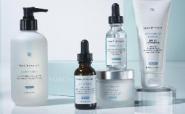Advertisement
Featured article
Cosmeceuticals - where cosmetics and pharmaceuticals meet
What they are and what you need to know

Cosmeceuticals are cosmetics that also contain pharmaceutical properties. Dandruff shampoo is a great example of a cosmeceutical, as it has both a cosmetic purpose - cleaning hair - and a medical one - eliminating dandruff. Other examples of cosmeceutical products are a makeup foundation that contains SPF protection or toothpaste that contains a fluoride treatment.
Unfortunately, the governing bodies that regulate cosmetics and pharmaceuticals do not always recognize cosmeceuticals as a viable product category. In the U.S., for example, such products can be legally labeled as a cosmetic or a drug, but not both, and while cosmetics are not regulated, pharmaceuticals are. Therefore, anything claiming drug properties falls under the auspices of the Federal Drug Administration (FDA). That, in turn, can cause problems when it comes to marketing claims and labeling. However, products labeled as cosmetics do not have the same strict guidelines to follow, leaving the consumer wondering whether or not he or she can count on their effectiveness.
Some examples of pharmaceutical products infused into cosmetics are: alpha hydroxy acid, collagen, peptides and retinol. Used in some skin care and makeup products, it appears those ingredients may provide some long-term physiological effects. In particular, a lot of cosmeceuticals claim to reduce the signs of aging or even to "turn back the clock." These products usually contain a combination of anti-aging helpers like antioxidants, enzymes, essential oils, herbs, minerals and vitamins. Each is known for its regenerative properties; what isn't always known is the amount contained within the product.
article continuedAdvertisement
In small amounts, some of those ingredients have little effect, while some require continued use over a long period of time. Certainly none that are genuine in nature can offer instantaneous results. Many of the ingredients included in over-the-counter cosmeceuticals come in extremely small quantities and thus may not produce any (or only minimal) results.
"Organic" cosmeceuticals are among the fastest growing products in today's world, but there is a problem with the use of the term. In reality, most organic ingredients have been chemically altered by necessity - they simply will not work if they are left in their nature-grown state. They are also not always as safe as the public is led to believe, as natural products tend to get less scrutiny than their chemically based cousins do.
In truth, cosmeceuticals simply are not the right answer for everyone. Sometimes a stronger drug is needed in order to solve a serious physical condition. In such instances, a dermatologist should always be contacted. He has more options available to him.
In the long run, basic common sense applies here. That includes the following:
- If over-the-counter products make outlandish claims that seem too good to be true, then they undoubtedly are.
- Research cosmeceutical products in depth before giving them a try. That will help avoid possible allergic reactions, dashed hopes and incredible expense.
- Stick with reputable names in the industry. Avoid companies that are new, untested and under reviewed.
- Expensive doesn't always mean better. However, too cheap should send up a red flag.
- Follow instincts. When the gut says "no," listen!
Got something to say?
We are looking for authors! Submit an article.
Related articles
Review: Rimmel Eye Magnifier Eye Opening Mascara
A mascara that feels great but is a pain to apply
Review: Maybelline Instant Age Rewind Double Face Perfector
A fantastic undereye concealer and highlighter in one
Staying beautiful when you can't afford cosmetics
Beat the credit crunch with home-made cosmetics
Top Stories
Review: Nice 'N Easy Foam Color
Color your hair without all the mess
Skin care - a new complexion analysis system
How new complexion analysis technology can prevent skin ageing
Protect your skin against melanoma
Melanoma: the deadliest form of skin cancer, but preventable
Comments
Add your comment